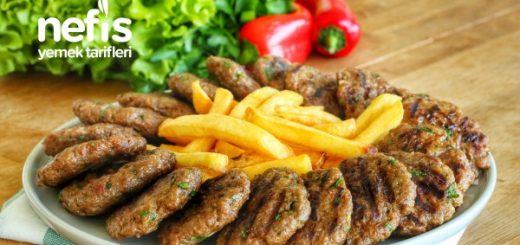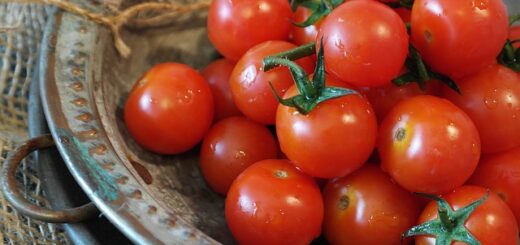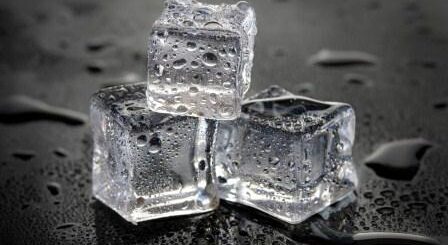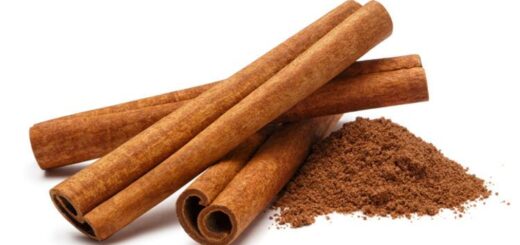How Many Calories in Dried Apricots?

Apricot is one of the fruits that are grown in many varieties in our country, with high nutritional value and innumerable benefits for those who consume it. It can be consumed in different ways as dry and wet. If the benefits of apricot, which is a fibrous food, are mentioned, it can be said that it is intestinal and heart friendly, as its accuracy has also been supported by scientific experiments. Apricot has a protective effect on the heart and balances your heart rhythm. It also makes your digestion easier by running your intestines. In this respect, it is a complete gut-friendly. Regulating the movements of the intestines, which is considered the second brain of the body, is one of the most important requirements for your health. Apart from this, there are other known benefits as well.
How Many Calories in Dried Apricots?
First of all, it is necessary to start with the question of how many calories is 1 dried apricot:
- 1 piece of dried apricot, that is about 10 g, has an average of 25 calories in calories.
- 1 serving is approximately 100 g. Dried apricots correspond to an average of 241 calories.
- The answer to the question of how many calories is 1 black dried apricot is 29 calories. There is not a huge difference in calories between the two types.
You can consider dried apricots, which are very rich in vitamins A and C, and contain folic acid, iron and potassium, as a snack. If you are on a diet and especially if you have difficulty staying away from sweets, definitely consume dried apricots. In this way, you will meet your sweet cravings without getting too many calories. When the calorie ratios of other sweet desserts are compared with the calorie ratio of dried apricots, it is seen that dried apricot is the right choice for the diet process. Provided, of course, that you do not exaggerate the amount. When you exaggerate the amount of dried apricots you eat, you increase the amount of calories you take.
Does Dried Apricot Make You Weak? Can it be eaten on a diet?
- Dried apricot is a correct diet food as it accelerates metabolism and regulates bowel movements.
- As it is known, when bowel movements are regulated, the problem of constipation, if any, disappears and the weight loss process accelerates. Constipation is one of the problems that slows down the weight loss process. Since apricot is a fibrous food, it does not cause fat formation in your body.
- It has a satiating effect and if you consume it without exaggerating the amount before meals, you will realize that you are fuller more easily and your portions are smaller.
- Dietitians recommend that people choose foods with a low glycemic index during the diet process. Dried apricots are a suitable choice for your diet as they are a low glycemic index snack.
- The question of whether dried apricots lose weight is one of the questions that those who prefer dried apricots in the diet process wonder. Dried apricots do not weaken you directly, but accelerate your slimming process.
- Of course, it is not possible to lose weight by consuming only dried apricots if you do not stick to your diet, do not pay attention to the amount of calories you consume and spend daily, and do not support your diet with some exercises, even if it is small.
Nutritional Value of Dried Apricots
If the nutritional value of dried apricots is calculated over 1 serving, that is, approximately 100 g, the average content of 1 serving of dried apricots is;
- 3.4 g. rate of protein,
- 7 g of fiber,
- 53 g of sugar,
- 63 g of carbohydrates,
- 0.5 g of oil,
- 1.162 mg of potassium,
- It contains 10 mg of sodium.
Apricot is a very rich food in terms of vitamins. Again, in 1 portion of dried apricots:
- 300 mcg of vitamin A,
- 1.2 mcg of vitamin C,
- It has 2 mcg of vitamin K.
These numbers are average values for 1 portion of dried apricots. It is often wondered whether there is a calorie difference between black dried apricots, known as sun dried apricots, and yellow dried apricots.
How to Make Dried Apricot Diet? Diet list
Dried apricot diet can be a powerful assistant in your weight loss process. You should be aware that the dried apricot diet alone will not be enough for you to lose weight, and you should definitely support your diet with your eating habits and exercises. Dried apricot is a suitable food for diet because it is a fibrous food, gives a feeling of satiety and meets your sugar needs without adding too many calories to you.
In addition, making a dried apricot diet does not mean spending all meals by eating apricots. You only increase your feeling of satiety by supporting your meals with dried apricots, and you will not have any difficulty in losing weight as apricot will activate your digestive system. You can start the experiment with an average of four days of apricot diet.
1 DAY
- Morning: Eat 3 apricots, 3 dates and drink 1 glass of water.
- Lunch: A salad prepared with tomatoes, cucumber and lettuce and optionally different greens is eaten and 1 glass of water is drunk with it.
- Afternoon: Eat 3 apricots, 3 dates and drink 1 glass of water.
- Before going to bed: Eat 3 apricots, 3 dates and drink 1 glass of water.
2 DAYS
- Morning: Eat 3 apricots, 3 dried figs and drink 1 glass of water.
- Lunch: Salad prepared with 1 tomato and plenty of rocket is eaten and 1 glass of water is drunk with it.
- Afternoon: Eat 3 apricots, 3 dried figs and drink 1 glass of water.
- Before going to bed: Eat 3 apricots, 3 dried figs and drink 1 glass of water.
3 DAYS
- Morning: Eat 3 apricots, 3 prunes and drink 1 glass of water.
- Lunch: A salad prepared using one tomato, cucumber and 2 peppers is eaten and 1 glass of water is drunk with it.
- Afternoon: Eat 3 apricots, 3 prunes and drink 1 glass of water.
- Before going to bed: Eat 3 apricots, 3 prunes and drink 1 glass of water.
4 DAYS
- Morning: Eat 3 apricots, 6 raisins and drink 1 glass of water.
- Lunch: Eat a salad prepared with one tomato, cucumber and small onion, and drink 1 glass of water with it.
- Afternoon: Eat 3 apricots, 6 raisins and drink 1 glass of water.
- Before going to bed: Eat 3 apricots, 6 raisins and drink 1 glass of water.
In addition to the diet list, drink plenty of water during the day and if you want, take advantage of herbal teas that you can consume without sugar. Before applying the dried apricot diet, if you have a health problem, consult your doctor. Be careful not to follow the diet for longer than four days. Instead of applying the dried apricot diet on top of each other, apply it at certain intervals.
Benefits of Dried Apricots
- Consuming dried apricots regularly prevents constipation by regulating bowel movements. If you have a serious constipation, you can eat up to 3 dried apricots with warm water in the morning before breakfast.
- When your constipation disappears, your bloating problem will also disappear.
- Dried apricots, which are rich in vitamins and minerals, keep your immune system strong against colds and many other diseases, especially in cold winter months.
- Apricots are skin friendly. Your skin increases its elasticity and removes skin blemishes, if any.
- If you have a febrile illness, you can drink apricot juice to reduce your fever a little.
- Apricots are also extremely beneficial for your stomach, intestines, heart and liver.
- It helps you keep your weight at the desired level by preventing fat storage in the body.











